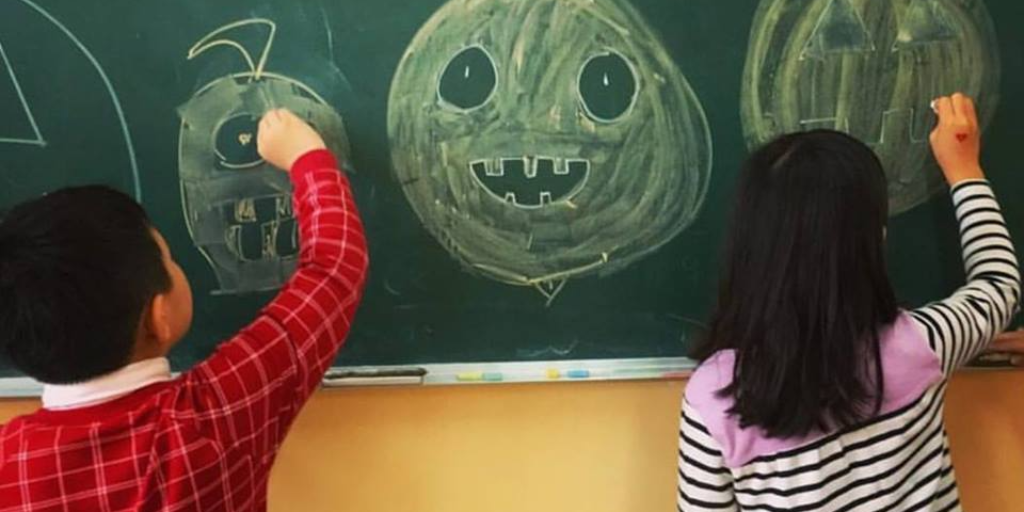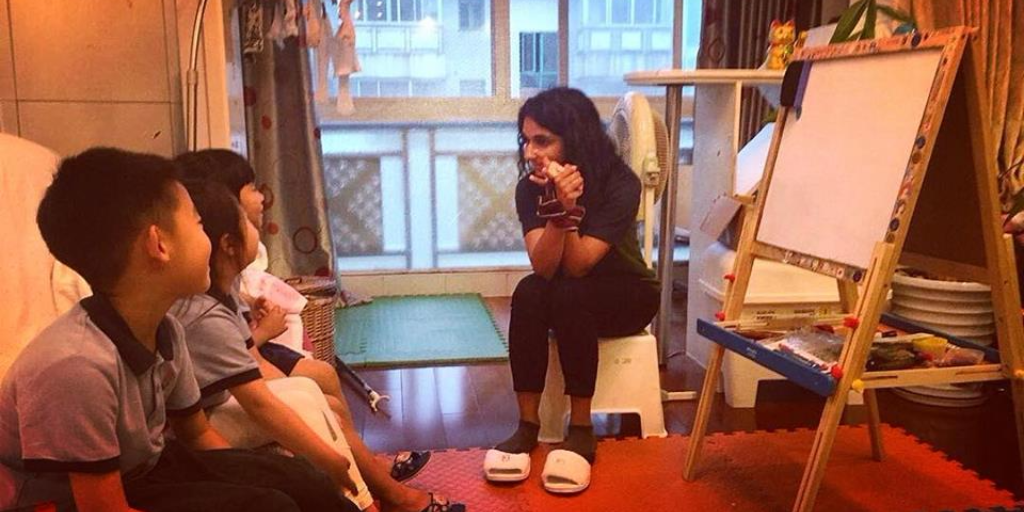There’s no doubt that teaching primary school students is extremely rewarding, not to mention great fun. Young learners love fun activities that get them moving giving you, the teacher, plenty to work with. Though basic vocab and simple sentence structures might make it seem so, it would be a mistake to assume that teaching primary students is easy. In fact, in some ways it can be more difficult. As a foreign teacher in a primary school, it’s important you find a balance between fun and learning. This might take some trial and error, but once you master it you’ll find both you and your students get a lot out of your lessons. To help you on your way to planning great lessons for beginners, we’ve put together some of our favourite activities for primary ESL classes.
1. Pass the bomb
This versatile game works well with beginners of various ages, and it can be adapted to suit pretty much any ESL topic. Simply stand students into a circle and give one student an object that they can pass around the circle. Set the topic and a timer and ask students to say a word related to the topic whenever they are holding the object. The idea is that students think as quickly as possible, because whoever is holding the object when the time runs out must sit out of the next round.
This is an effective activity for getting students to think as quickly as possible to practice vocabulary from the lesson, or as a warm up game during which you can assess how much students already know about a topic.
2. Simon Says
This English classic is a big hit with primary ESL classes. The concept of ‘Simon’ can be a little hard to grasp, so it’s often a good idea to change it either to your name, or ‘teacher’. It’s another game that can be adapted to suit a variety of topics, like body parts, present continuous verbs, action words and commands.
To play, ask students to stand up and give them a command starting with “teacher says…”. Students must do the action you said, if anyone gets it wrong they must sit down. To make the game more interesting, and to make sure your students are listening to you, every now and again shout a command without saying “teacher says…”. If you say a command without this, students should stand still and NOT do the action. If anyone does, ask them to sit down.
This is a sure-fire way to get your students excited and to test just how carefully they are listening!
3. What do you hear?
To play this game, put your students into teams and ask a representative from each team to go to the blackboard. Describe something related to the topic of your lesson for the students to draw, for example; “The dog has a long tail and 3 legs”. Students must try to draw the picture as quickly and accurately as possible. Award a point for each correct part of the drawing.
Change this activity up and get students to practice speaking by giving them a drawing of something with distinct features. In teams, they must describe it to you to draw. Once you’ve completed drawings based on descriptions given by both teams compare the drawings and award points.
4. Missing item
This activity can be done either on the board, or using realia, and it’s a great way to practice vocabulary for a range of topics. Show students the pictures or objects and allow them to look at them carefully for a minute or so. After a minute, ask the class to close their eyes, or cover the tray of realia. Remove one of the pictures or objects and ask students to look. They will then have to name the item that has been taken.
5. Memory test
This is a simple vocabulary memory game that is great for helping students learn new words. To play, you will simply need some flashcards or pictures and something to stick them on the board with.
Stick your flashcards on the board and point at different flashcards over and over, asking students to shout out the words, getting faster and faster. Then, draw a circle around one of the flashcards and remove it. Repeat the drill, asking students to say the vocabulary words, including the one that has been removed. After each round, remove another flashcard until you are left with nothing but circles on the board.
To finish the game, give individual students the opportunity to come to the front of the class and recite the vocabulary depending on what circle you are pointing at.
6. Rearrange the sentence
This is a great activity for students who are learning to form sentences and can be a great team game.
Place a jumbled up sentence on the board, split your class into teams, and ask two students to come to the front of the classroom. When you tell them to begin, students must unjumble their individual sentence. The first student to reorder the sentence correctly wins a point for their team.
Alternatively, give students flashcards with which they can answer your questions. For example; “is it hot in winter?”, “No it is cold”. To involve the whole class, ask the other students to read the sentences aloud and tell you if they are correct.
7. Taboo
This fun family board game also works well in foreign language classes with students who have acquired a decent amount of vocabulary. Give students a card on which there is a word they must describe to their team mates. Underneath the word, make sure to write around 4-5 other words they cannot use in their description. Give the students one minute to describe the vocab word to their team. If they use one of the taboo words, they must forfeit the card and either move on to the next one or allow the next student to have a turn.
This is a great team game that gets students involved and thinking outside the box to find different ways of expressing themselves.
8. Board Scramble
This game is an effective way to test your students’ understanding of vocabulary. Split your class into two teams, stick some flashcards on the board and ask two students to come to the front of the class. Shout out different words and ask students to circle or tap the picture representing the word you said. The first student to correctly identify the word wins a point for their team.
This is a very active game that usually gets the whole class involved. It can get noisy, so make sure to keep them under control!
Ready to take the ESL classroom by storm? Explore our programs or send in an application.






